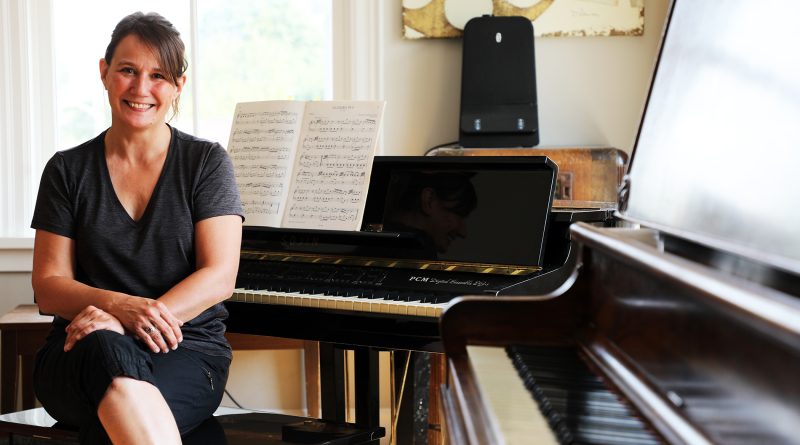Music academy handcuffed by CEBA
By Jake Davies - West Carleton Online
CARP – For hundreds of thousands of small businesses, the Canada Emergency Business Account (CEBA) loan was a lifeline during the COVID pandemic, providing a $60,000 loan for businesses that were repeatedly forced to close over a two-year period due to public health regulations.
Despite the government extending the repayment deadline to last Thursday (Jan. 18), it turns out that lifeline was far too short.
It’s estimated a quarter of small businesses with outstanding CEBA loans missed last week’s repayment deadline according to the federal government. Meeting that deadline allowed businesses to receive partial forgiveness ($20,000) of that loan.
Gambit Music Academy owner-operator Jennifer Johnson is one of those businesses struggling to stay operating while adding on a new expense.
Johnson had just left her job working at Algonquin College to focus on her business teaching music full time.
“It seemed feasible I could do it,” Johnson told West Carleton Online yesterday (Jan. 23).
It turned out she quit Algonquin College three weeks before the first lockdown due to COVID on March 17, 2020.
“It was unclear who could be open and who couldn’t,” Johnson said. “I phoned the government. I was considered a daycare. I though ‘oh my God, I’m destitute.’”
The CEBA loan was her saviour.
“This will help me through,” Johnson said. “The number and length of lockdowns. We also shutdown a couple of times because I had COVID. We were closed more than we were open that year.”
While Johnson tried online lessons, “it wasn’t really a popular option.”
After spending the school day online, neither kids nor parents wanted to spend more time online taking lessons.
“A good chunk of our students are quite young,” Johnson said. “It’s hard to keep their attention online.”
It’s also hard to compete with the thousands of free online music tutorials available on the Internet as well.
“No, you can’t at all,” Johnson.
As restrictions lifted, other challenges arose. Unlike most business loans, a CEBA loan wasn’t used to improve business, expand business, or create new business. It was there simply to help businesses survive while they weren’t able to create their own revenue due to ongoing restrictions.
Now that the restrictions are over, businesses have to add the extra expense of paying their loans back, while rebuilding their businesses out of the wreckage of COVID.
“The numbers don’t add up,” Johnson said. “I think it’s going to continue to be a challenge. Post-pandemic, I hate using that word, we’re not even close to being out of the pandemic woods.”
In the post-pandemic world, businesses (and everyone else) are dealing with fast rising costs, super high inflation and a lack of staff to help businesses grow.
“I haven’t been able to have the staff I need to make the numbers work,” Johnson said. “There are so many layers.”
Gambit Music Academy currently opens early for a few before school lessons, has several retirees taking lessons during the day, and then goes to about 8:30 p.m. for more after-school kids’ classes.
“I don’t make $40,000 in a good year, and I haven’t had a good year since COVID,” Johnson said. “My days are fully loaded. This fall and last spring we had weeks where 30 per cent of kids don’t come due to being sick. The same with teachers. If they’re sick, that’s 10 or 12 classes in a day I don’t have that revenue come in. In my case, I am taking on 30 per cent more students than is my usual cap, and that has a huge impact on my ability to take care of the administrative duties I have with running this business as well. The domino effect is alarming.”
Johnson has kept in touch with her bank that financed the loan and received a little bit of good news.
“They’re giving me an extension to pay the $40,000 by March,” Johnson said. “That takes the stress off me for a few weeks. I’ve heard of people refinancing their homes just to keep the doors open. An extension to the end of the year would be ideal. It would make all the difference.”
Johnson, trying to deal with these challenges, was unaware this was an issue for thousands of businesses across the country.
“I was pretty surprised when I realized it was going to be a national issue,” Johnson said. “I thought it was just a me thing. With payroll, I’m lucky if I break even. Was hoping for a better fall, but it adds up. $40,000 might as well be $1.5 million. It’s not an easy thing. As long as it lasted, it wasn’t enough to get by. I don’t want to sound ungrateful, because it kept the doors open, but I didn’t know the future. It was unprecedented.”












